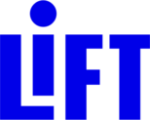Gary Johnson describes the South Philadelphia neighborhood where he grew up as a “negative environment,” but a smile appears when he recalls trash day. “I was eight years old,” he says. “Before the garbage truck came, I’d go looking for broken TVs and radios on the sidewalk. I’d bring them home and take them apart.”
After decades of bad decisions and bad luck, Gary realized he needed a LIFT. The odds were stacked against him, and not just because of Philadelphia’s record unemployment levels. The day after he was released from prison, he visited his assigned employment agency but quickly grew frustrated. “They didn’t know how to help me,” he recalls. “They knew how to help people who already had career paths. I dropped out of high school a year before graduation.” Then he tried LIFT.
“Before LIFT,” he summarizes, “getting a job was like looking for a needle in a haystack—at night. LIFT was my flashlight.”
LIFT program development associate Anisha Sinha asked him about his life and goals, and he began visiting LIFT’s offices every day to write a resume and cover letters, to submit job applications, and to build his job readiness skills. “I didn’t know how to talk in interviews,” Gary admits, “but Anisha forced me to articulate my story and my objectives. It helped me prepare for the real thing.”
Twenty job interviews later, an area hotel wanted to hire Gary as a part-time dishwasher. They requested a character letter, and Anisha readily wrote a glowing recommendation. “He was diligent about coming to LIFT and working toward his goals,” she recalls. “Of course I knew he would be just as serious on the job.” Gary began working at the hotel a year ago, and in August he was promoted to full-time status.
A month later, the hotel announced its impending closure, but Gary wasn’t discouraged. Instead, he started drafting his next steps. At 50, he still loves tinkering with electronics, and LIFT helped him to enroll in a GED program and to prepare for community college, where he can develop his skills.
As Gary reflects on how LIFT is changing his life, he looks straight ahead and steadies his voice. “You can become pessimistic after being incarcerated,” he says. “When you’re in prison, everything is based in negativity. LIFT is opportunity. People are happy here. And sometimes,” he chuckles, “I think they are even happier than you are when you get the job, cause they all want to see you make it.”
